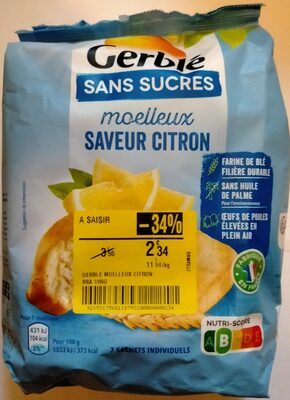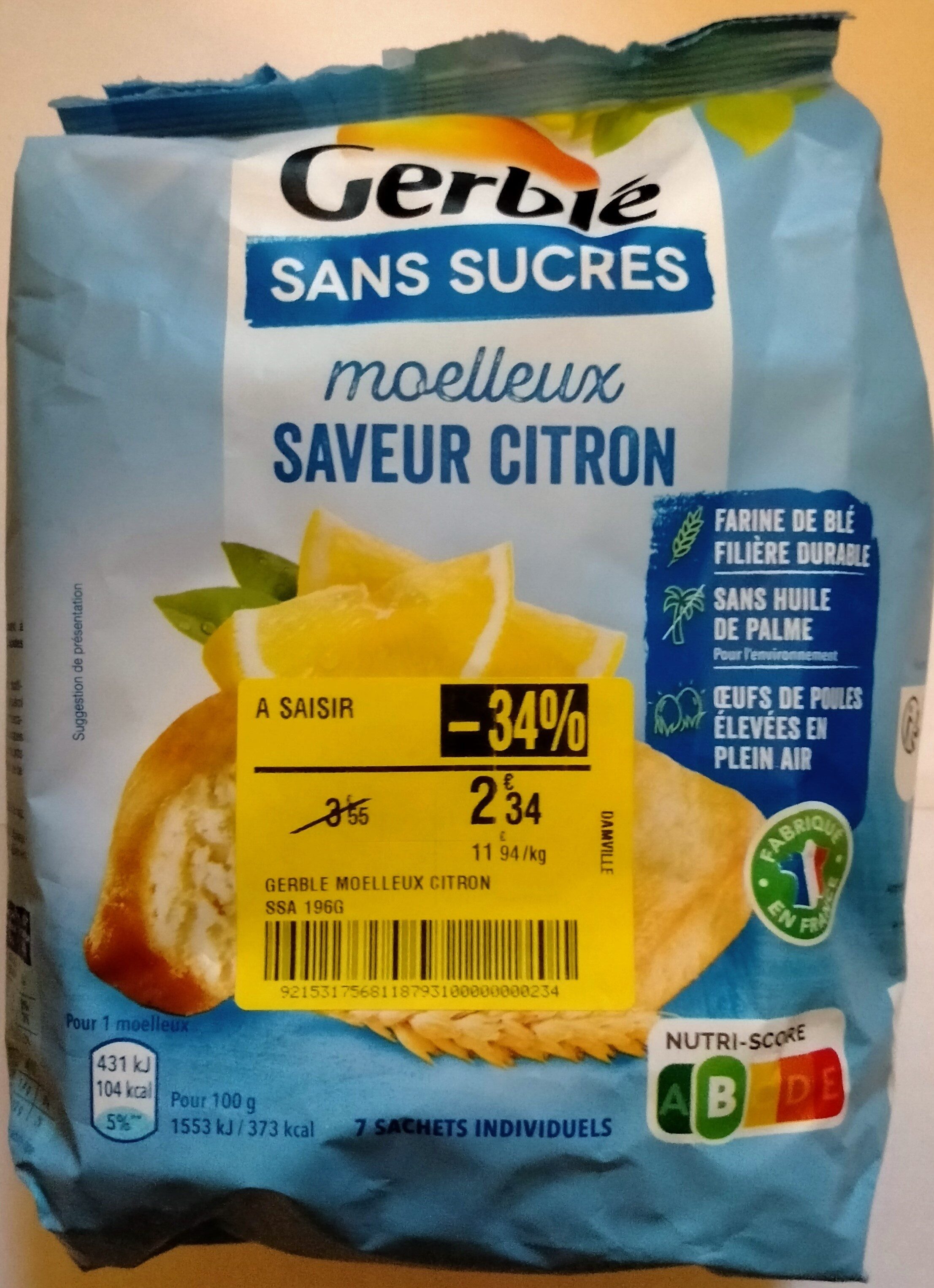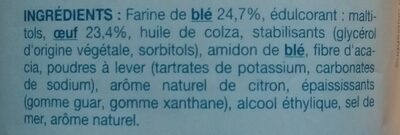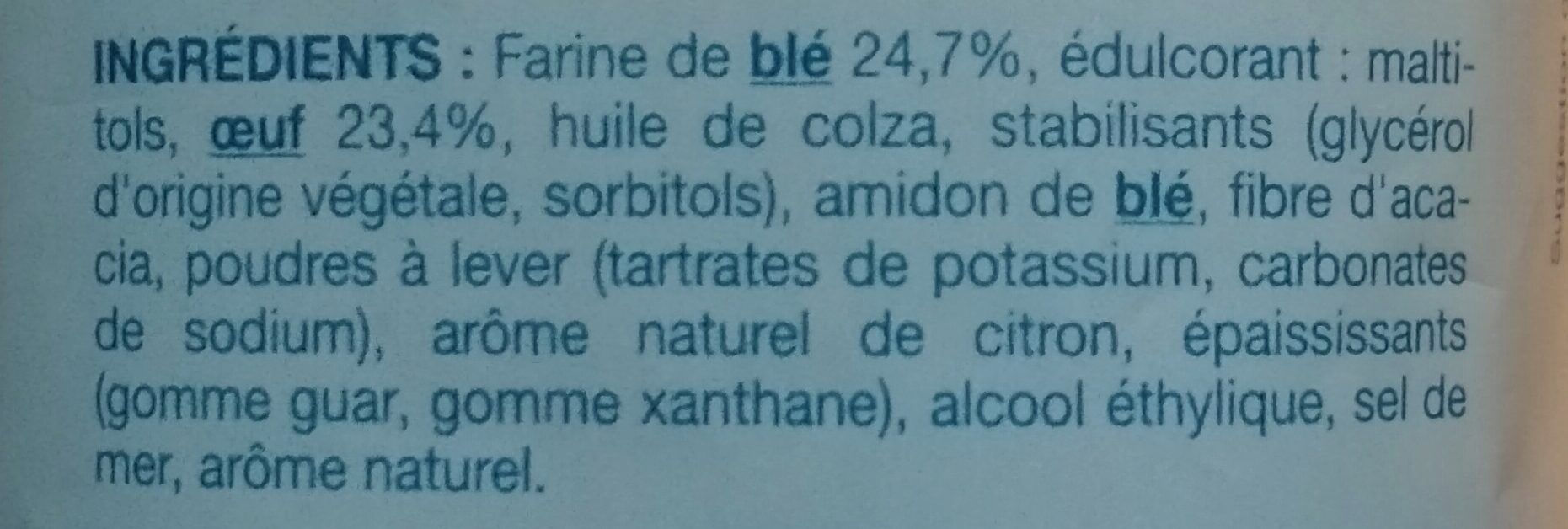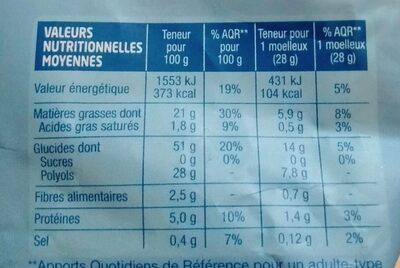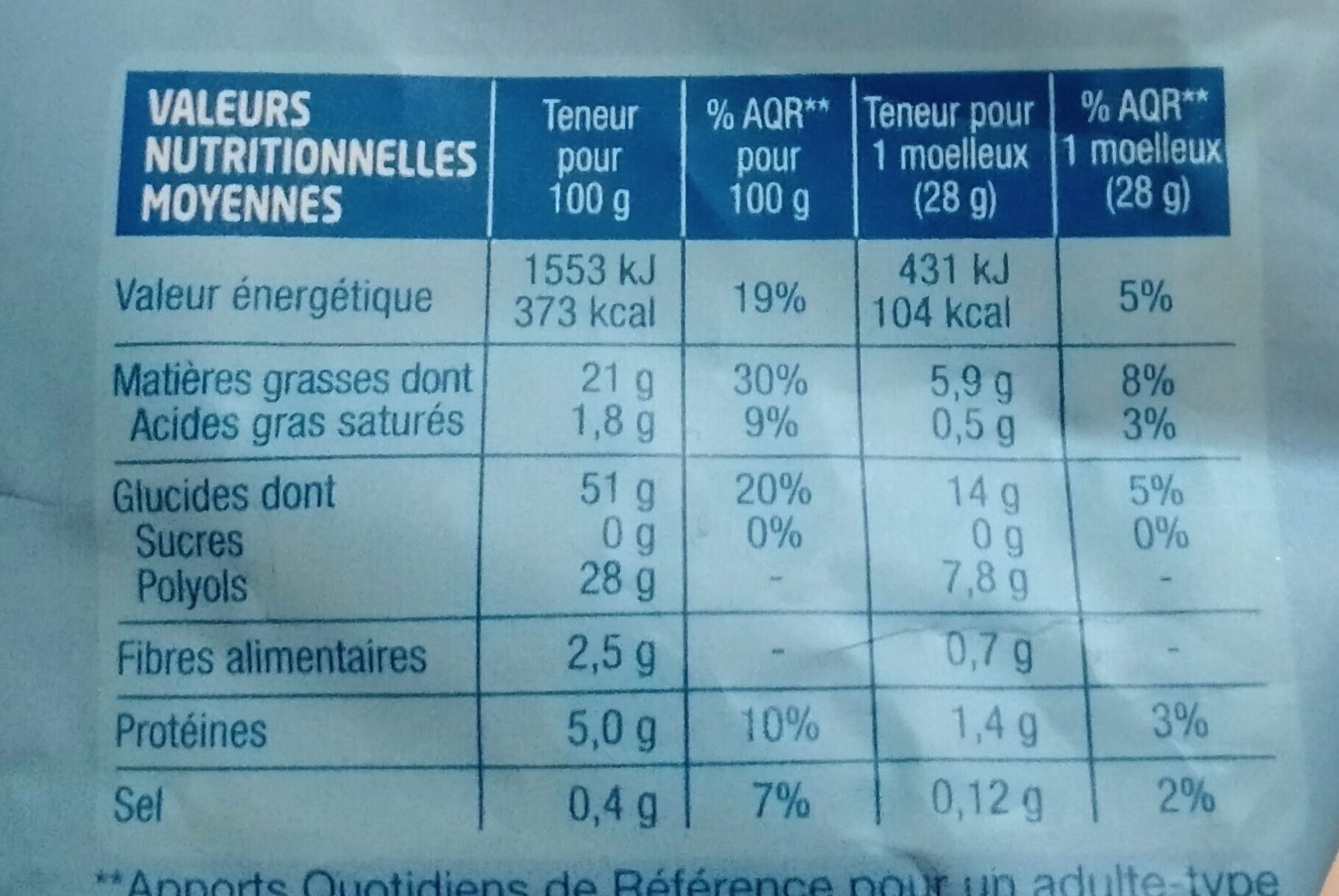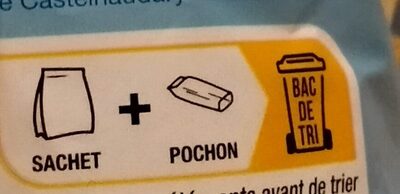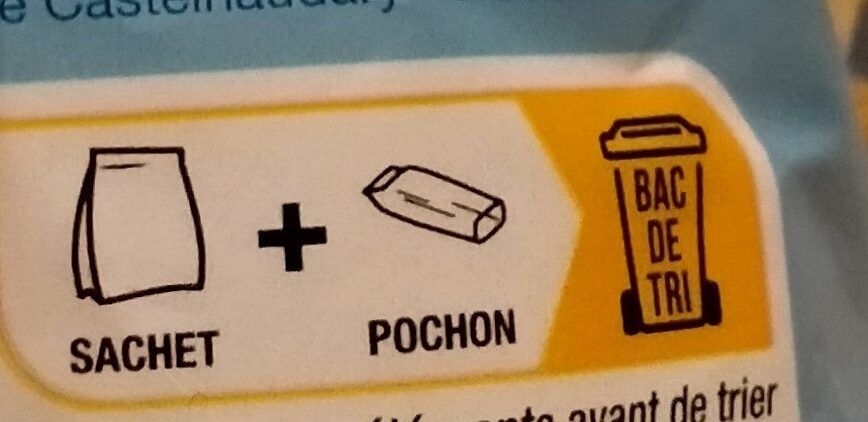Gerblé - Sugar Free Lemon Cake, 196g (7oz) - 196 g
This product page is not complete. You can help to complete it by editing it and adding more data from the photos we have, or by taking more photos using the app for Android or iPhone/iPad. Thank you!
×
Barcode: 3175681187931 (EAN / EAN-13)
Common name: Gâteau moelleux sans sucres avec édulcorant à l'arôme naturel de citron, à teneur réduite en acides gras saturés.
Quantity: 196 g
Packaging: Plastic, Bag, fr:Film en plastique
Brands: Gerblé
Categories: Snacks, Desserts, Sweet snacks, Biscuits and cakes, Cakes
Labels, certifications, awards: Low or no sugar, Free range, Free range eggs, Made in France, No palm oil, No sugar, Nutriscore, Nutriscore Grade B
Origin of the product and/or its ingredients: Fabriqué dans l'Oise
Manufacturing or processing places: France
Link to the product page on the official site of the producer: https://www.gerble.fr/sans-sucres-sans-s...
Stores: Magasins U, carrefour.fr, Carrefour Market
Countries where sold: France
Matching with your preferences
Report a problem
Data sources
Product added on by openfoodfacts-contributors
Last edit of product page on by thaialagata.
Product page also edited by bojackhorseman, date-limite-app, didierg, driveoff, inf, kiliweb, magasins-u, off.58bba06e-2036-494f-b370-a4f281284eec, off.9e832968-a156-4ff5-95b7-6f715acff585, packbot, ramses16, roboto-app, sebleouf, shawarma, tacite, yuka.VjY5ZU12Z0RncUkzeXNZTytqL1Y1dDFVMk1HdlFqMnlMK0V3SVE9PQ, yuka.ZEl4WlRZVW45dWhYb01jNHpBL1Y0SXQxL1p1WVlUbVRjYzg4SUE9PQ.
